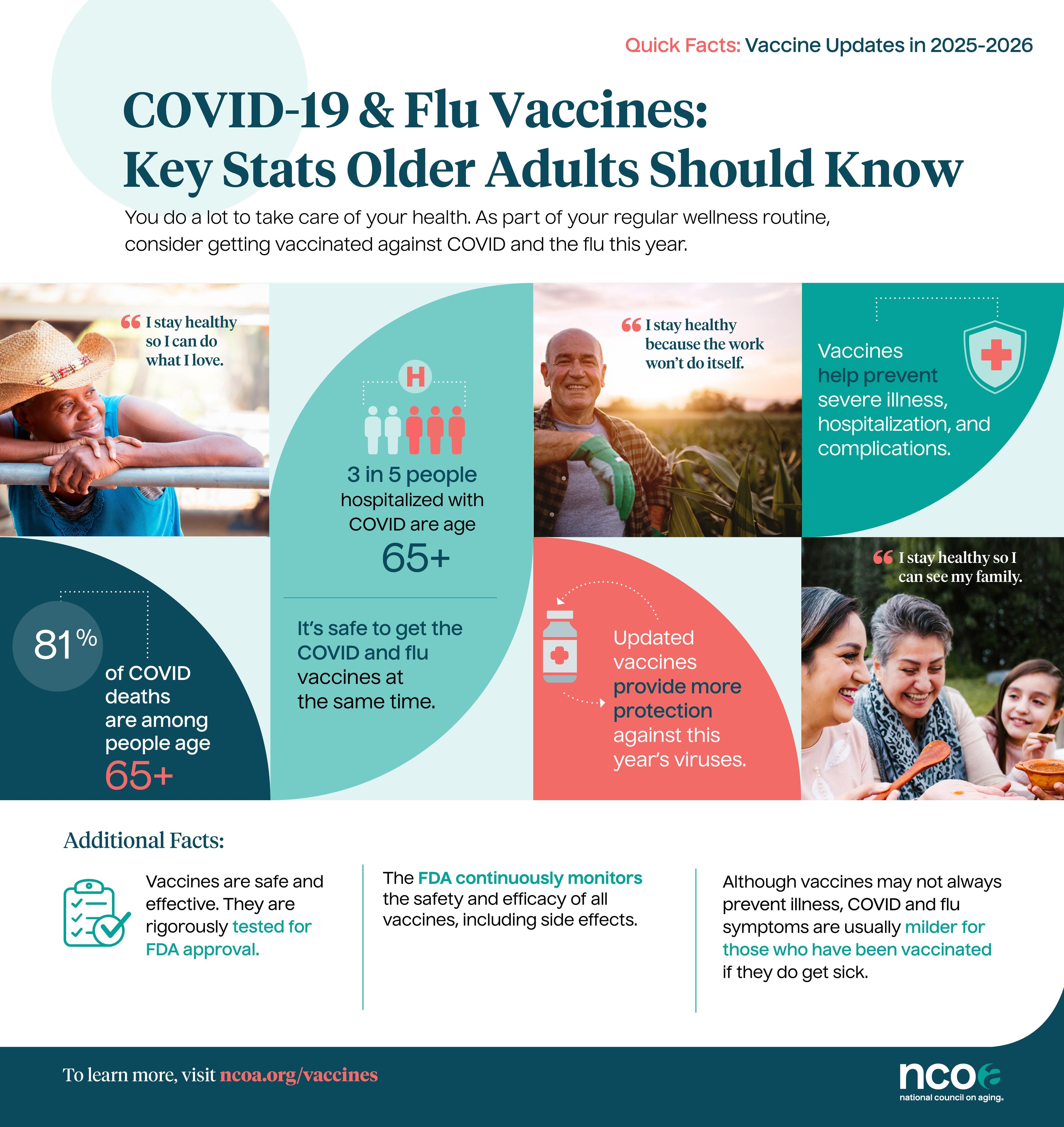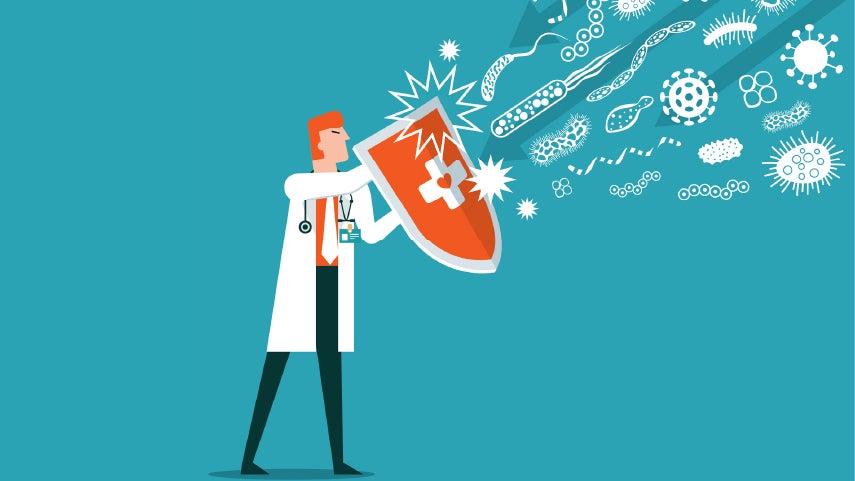Protect What Matters

Your health makes independence possible. Get vaccine information you can trust.
Protecting your health helps protect your independence—and the life you want to keep living. While healthy eating and regular physical activity can support your immune system, older adults face a higher risk of serious complications from COVID and the flu. Staying up to date on vaccinations remains one of the most effective ways to lower your risk of severe illness, hospitalization, and death.
At NCOA, we support evidence-based immunizations that help older adults stay active, independent, and connected to what matters most. We encourage you to talk with your doctor, pharmacist, or nurse about your individual health risks and whether the updated 2025–2026 COVID, flu, and RSV vaccines are right for you.
Frequently asked questions about COVID and flu vaccines
Is the COVID vaccine safe? COVID vaccines and subsequent boosters are all approved by the U.S. Food and Drug Administration (FDA). The FDA has a rigorous approval process. Vaccines are carefully tested before they are approved to make sure they are safe, effective, and of high quality. Even after approval, vaccines may continue to be studied to learn more about how well they work and to watch for any possible side effects.
What are the benefits of getting vaccinated against COVID and the flu? People over 65, some people with disabilities, those who have compromised immune systems, and those with certain underlying medical conditions are at higher risk of developing complications from COVID and the flu.
Older adults who have gotten vaccinated are more likely to stay out of the hospital and have a lower risk of death from these illnesses. Although vaccines do not always prevent infection, COVID and flu symptoms are usually milder for people who have been vaccinated, when compared to those who did not get vaccinated.
Will I have side effects from the COVID or flu vaccine? Maybe. Some people experience side effects from vaccines such as injection site pain, swelling, and redness; fatigue; headache; and muscle aches. These side effects are usually mild and subside in one to three days. Serious side effects from these vaccines are rare, and their safety is continually monitored.
Will a vaccine prevent me from getting sick? Getting vaccinated doesn’t guarantee you won’t get COVID or the flu. But COVID and flu symptoms are usually milder for those who have been vaccinated, when compared to those who did not get vaccinated.
Can I get COVID or the flu from a vaccine? No. The FDA-approved COVID vaccines are made with either a killed virus, a weakened virus, or no virus at all, so they cannot make you sick with COVID.
Flu vaccine shots contain either inactivated virus, meaning the viruses are no longer infectious, or a particle designed to look like a flu virus to your immune system. The nasal spray flu vaccine does contain a live virus, but the viruses are changed so that they cannot give you the flu. You may have a reaction to the vaccine that includes feeling ill or achy, but that is not the flu or COVID. It’s a side effect from the vaccine that will go away in a few days.
Why do I need another COVID vaccine? Even after you are fully vaccinated, protection against the virus naturally decreases over time. Adults over 65 and many people with disabilities and chronic conditions are more likely to suffer complications, be hospitalized, and die from COVID. Getting the most current vaccine recommended by the Centers for Disease Control and Prevention (CDC) gives you added protection from the strains that are currently circulating.
Which vaccines are right for me? In September 2025, the Centers for Disease Control and Prevention (CDC) Advisory Committee on Immunization Practices (ACIP) voted to update the COVID-19 vaccine schedule. Under this new guidance, for everyone age 6 months and older, the COVID vaccine is a personal choice to be made in partnership with a health care provider.
For adults age 65+ and those with underlying health conditions, the COVID vaccine is still one of the most effective ways to prevent severe illness and avoid hospitalization and death.
Your next steps in getting vaccinated
Ask your health care provider about getting up to date on your vaccines.

Flu Season Is Here. Get Informed. Be Prepared.
Is It Flu or COVID?
While flu and COVID-19 share many similarities, they are distinct illnesses with different causes, complications, and treatments.

COVID Testing and Medicare: What to Know in 2026
Wondering whether Medicare still covers COVID tests—or how testing works now? This updated guide walks through your current testing options, when it makes sense to get tested, and what steps to take if you test positive. Stay informed, stay prepared, and protect your health.






